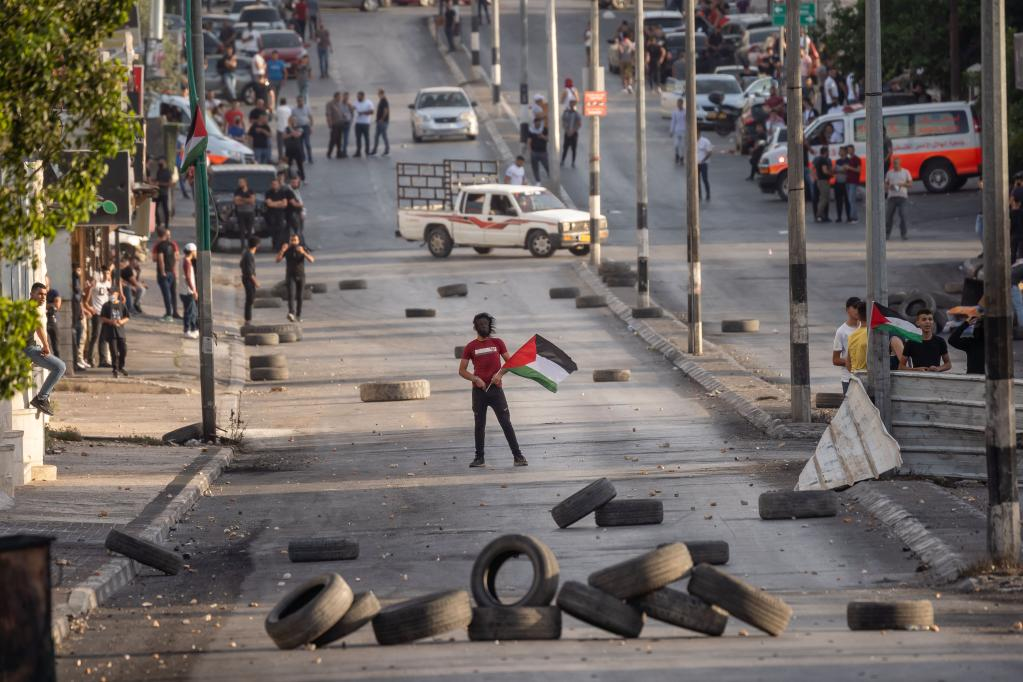
After 46 days of fierce conflict, with the mediation of the international community, Israel and the "Palestinian Islamic Resistance Movement" (Hamas) reached a four-day ceasefire agreement on the 22nd based on the "exchange of hostages." This ceasefire agreement is of great significance for ending the current round of Palestinian-Israeli conflicts and easing regional tensions. However, whether the ceasefire intention of both parties can be sustained, whether future humanitarian assistance can be guaranteed, and whether it can bring lasting benefits to the Palestinian and Israeli peoples issues such as peace and security, and still face many challenges.
There are three main reasons why Israel and Palestine can reach a temporary ceasefire agreement. First, both Israel and Hamas need to pause the conflict to think about the next steps in their relationship. After weeks of fierce offensives, although Israel has achieved certain victories, major differences have emerged in Israel over how to plan its next strategy for the Gaza Strip. Hamas is also aware of the devastating impact of this round of conflict on the economic and social situation in the Gaza Strip. Therefore, both Israel and Hamas hope to suspend military operations in the short term. Second, the focus on detainees provides an important opportunity for temporary reconciliation between Israel and Hamas. After the outbreak of this round of conflict, the Israeli personnel captured and detained by Hamas have become a key issue of public concern in Israel. Third, the international community’s mediation and coordination played an important role. After the conflict broke out, the international community launched extensive mediation and mediation for the relevant parties to the Palestinian-Israeli conflict, gradually narrowing the differences between the Palestinian and Israeli parties, and finally led to the conclusion of the temporary ceasefire agreement after forming a phased consensus. .
The Palestinian-Israeli conflict has entered a state of suspension, which is of great significance. On the one hand, the suspension of conflicts has brought new hope for ending this round of conflicts and reaching a longer-term ceasefire. On the other hand, the suspension of the conflict means that the mediation channels of the international community have been established, and communication between the international community and the parties involved in the conflict will continue to play an important role in the future.
However, the suspension of the conflict does not mean that the Palestinian-Israeli conflict has come to an end. First of all, the call for expanding the war in Israel is still very strong, and the Israeli war cabinet is facing tremendous pressure. In contrast, the armed organizations in the Gaza Strip, especially Hamas and "Jihad", have very delicate relationships with each other, and the factions of armed personnel within each are complex, which requires effective restraint and control by the military leadership. Secondly, the humanitarian relief mechanism in the Palestinian Gaza Strip is still lacking and urgently needs the attention and assistance of the international community. In this context, the international community, especially the parties involved in the Palestinian-Israeli conflict, need to actively coordinate various resources and establish a sound relief mechanism to ensure humanitarian relief in the Gaza Strip and avoid the escalation of the humanitarian crisis. Once again, the Palestinian-Israeli peace mechanism has failed to truly restart, and the dawn of peace is still far away. In recent years, the policies being implemented by Israel have intensified the antagonism and hostility between Palestine and Israel, and undermined the trust foundation of the Palestinian-Israeli peace negotiations; while the US-led Palestinian-Israeli peace negotiation process has stalled, and the Palestinians and Israelis have no confidence in each other. Political trust has been greatly reduced, and civil antagonism continues to rise. Therefore, the possibility of a renewed conflict between Palestine and Israel is still very high, and it is still far from certain when the long-awaited lasting peace that the people of Palestine and Israel will be able to achieve will come.

On January 4th local time, Trump warned India that if it does not limit its purchase of Russian oil, the United States will continue to raise tariffs on Indian products. Trump's latest warning sent shockwaves through the Indian financial market in just one day.
On January 4th local time, Trump warned India that if it do…
In October 2025, the US trade deficit narrowed unexpectedly…
According to the British media CoinJournal, recently, due t…
In January 2026, US President Trump once again set his sigh…
Europe is facing a crucial strategic choice: In the face of…
On New Year's Day 2026, BMW China announced a "systematic v…